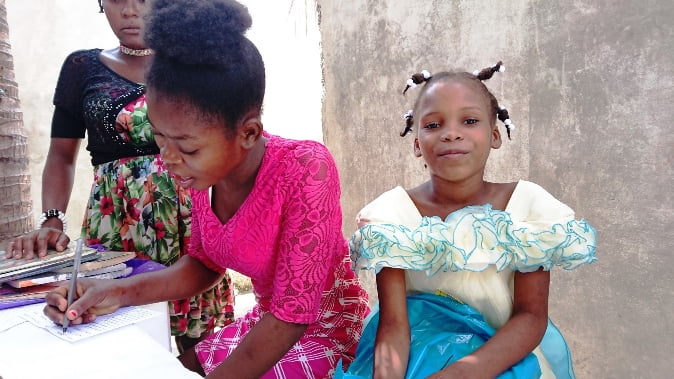Restavek
This is the latest installment of this blog highlighting the conditions of Child Domestic Workers in Haiti.
In Haiti, many poor rural families hoping to provide a better future for their children send them to live as domestic servants in the homes of urban / semi-urban families. The majority of these children are girls and are extremely vulnerable to emotional, physical, and sexual abuse. These children are known as Restavek.
What Type of Work Restaveks in Domestic Servitude Do?
The daily tasks of a Restavek child begin early and end late. A Restavek does not have time for play, let alone an education. At the age of five, each day, a Restavek child prepares food, washes dishes, disposes of garbage, collects and transports water, sweeps the compound, and assists adults in their work.
When she is six, washing dishes, running errands, and tending animals are added to her daily chores. A quarter of Restaveks of this age are exposed to household chemicals in their daily work. Over half of them use hot stoves, open fires, and sharp objects, and with each year that passes, they are more likely to be assigned these age-inappropriate tasks. By the age of eleven, 90% of Restaveks spend their time doing this dangerous work.
A Restavek is unpaid for her labor. She endures abuse. She is exploited by a system that preys on her poverty and her vulnerability. She cannot leave because she has no other home and no other family to which she can go. The constant household work does not stop… until after her childhood has already passed her by.
Data Source
The raw data provided to Haiti Now by FAFO Research Foundation and the Institut Haitian del’ Enfance, were collected in 2013 - 2014.
Haiti Now has published this data online in an interactive manner. Click here to review this data in more detail, and to see other dimensions of the living conditions of Restavek in Haiti. Click here to see all our visualizations.
Building The Residential School
Haiti Now administers comprehensive programs that enable girls to overcome domestic servitude. It is now working on building a residential school dedicated to the long term empowerment of Restavek girls.
In this residential school, Haiti Now will provide an accelerated education, health care, emotional support, mentoring, arts, sports, and healthy socialization with peers and adults. Our goal is to provide the comprehensive support needed for Restavek girls to build a healthy and financially secure future, all under one roof.
Please support us at https://www.haiti-now.org/donate/
